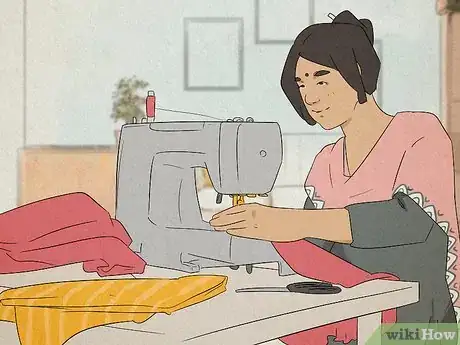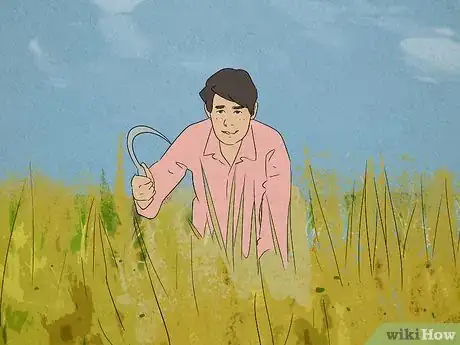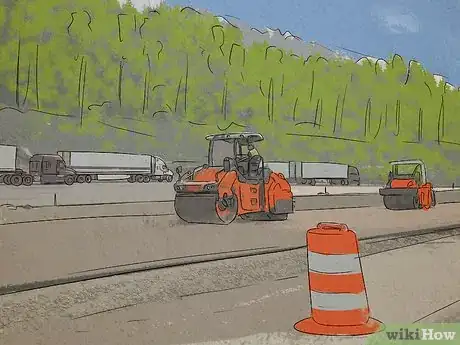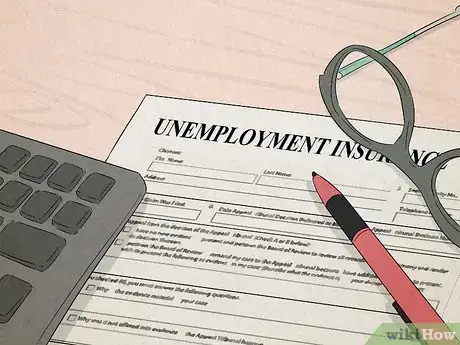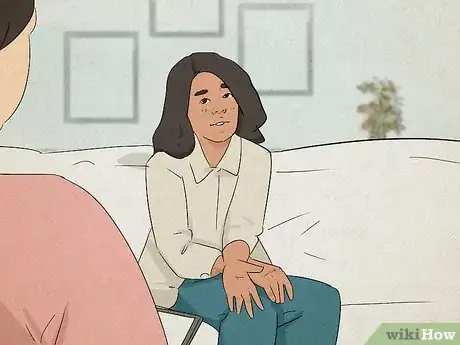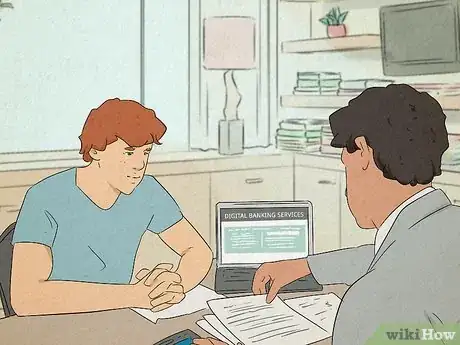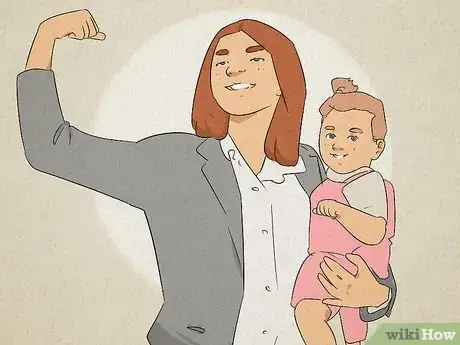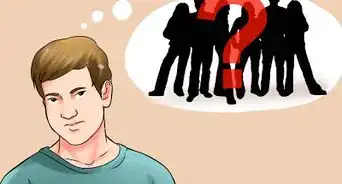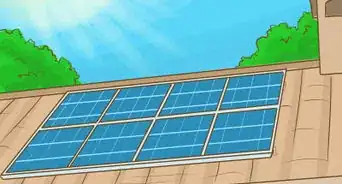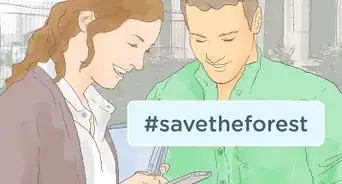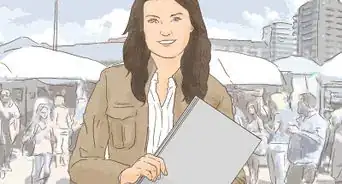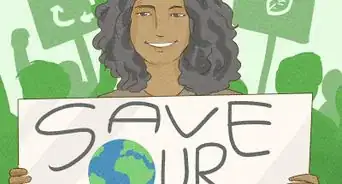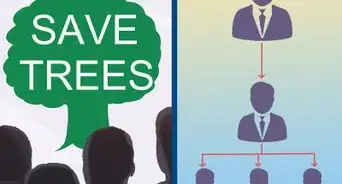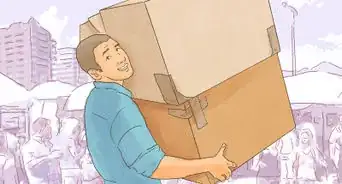This article was co-authored by Alex Kwan and by wikiHow staff writer, Kira Jan. Alex Kwan is a Certified Public Accountant (CPA) and the CEO of Flex Tax and Consulting Group in the San Francisco Bay Area. He has also served as a Vice President for one of the top five Private Equity Firms. With over a decade of experience practicing public accounting, he specializes in client-centered accounting and consulting, R&D tax services, and the small business sector.
There are 32 references cited in this article, which can be found at the bottom of the page.
This article has been viewed 15,893 times.
Unemployment and poverty are linked, since a lack of income makes it hard for people to make ends meet. What can communities and governments do to reduce poverty and unemployment? Whether you’re a student or an activist, we’ve outlined the top strategies and policies recommended by experts to help you understand these complex economic issues. The solutions fall into three major buckets–helping people become more employable, creating more jobs, and supporting governmental programs to stop the cycle of poverty.
Steps
Expert Q&A
-
QuestionHow can I benefit from starting a nonprofit organization?
 Alex KwanAlex Kwan is a Certified Public Accountant (CPA) and the CEO of Flex Tax and Consulting Group in the San Francisco Bay Area. He has also served as a Vice President for one of the top five Private Equity Firms. With over a decade of experience practicing public accounting, he specializes in client-centered accounting and consulting, R&D tax services, and the small business sector.
Alex KwanAlex Kwan is a Certified Public Accountant (CPA) and the CEO of Flex Tax and Consulting Group in the San Francisco Bay Area. He has also served as a Vice President for one of the top five Private Equity Firms. With over a decade of experience practicing public accounting, he specializes in client-centered accounting and consulting, R&D tax services, and the small business sector.
Certified Public Accountant You can start a nonprofit organization and do some community work. In this way, you can return your earnings to the community and save the taxes.
You can start a nonprofit organization and do some community work. In this way, you can return your earnings to the community and save the taxes. -
QuestionCan I claim tax benefits by giving to the charity?
 Alex KwanAlex Kwan is a Certified Public Accountant (CPA) and the CEO of Flex Tax and Consulting Group in the San Francisco Bay Area. He has also served as a Vice President for one of the top five Private Equity Firms. With over a decade of experience practicing public accounting, he specializes in client-centered accounting and consulting, R&D tax services, and the small business sector.
Alex KwanAlex Kwan is a Certified Public Accountant (CPA) and the CEO of Flex Tax and Consulting Group in the San Francisco Bay Area. He has also served as a Vice President for one of the top five Private Equity Firms. With over a decade of experience practicing public accounting, he specializes in client-centered accounting and consulting, R&D tax services, and the small business sector.
Certified Public Accountant It is possible to make donations to the charity and claim the tax benefits.
It is possible to make donations to the charity and claim the tax benefits.
References
- ↑ https://en.unesco.org/news/world-poverty-could-be-cut-half-if-all-adults-completed-secondary-education
- ↑ https://www.oecdbetterlifeindex.org/topics/education/
- ↑ https://en.unesco.org/news/world-poverty-could-be-cut-half-if-all-adults-completed-secondary-education
- ↑ https://educateachild.org/explore/barriers-to-education
- ↑ https://www.ncbi.nlm.nih.gov/pmc/articles/PMC2528798/
- ↑ Alex Kwan. Certified Public Accountant. Expert Interview. 23 April 2021.
- ↑ https://prospect.org/special-report/education-cure-poverty/
- ↑ https://www.americanprogress.org/issues/economy/reports/2018/02/22/447115/better-training-better-jobs/
- ↑ Alex Kwan. Certified Public Accountant. Expert Interview. 23 April 2021.
- ↑ Alex Kwan. Certified Public Accountant. Expert Interview. 23 April 2021.
- ↑ https://www.un.org/africarenewal/magazine/august-2015/microfinance-good-poor
- ↑ https://journals.sagepub.com/doi/full/10.1177/0018726716640865
- ↑ https://journals.sagepub.com/doi/full/10.1177/0018726716640865
- ↑ https://www.un.org/development/desa/socialperspectiveondevelopment/issues/employment-and-decent-work.html
- ↑ https://ideas.repec.org/a/sls/ipmsls/v28y20154.html
- ↑ https://www.brookings.edu/research/expanding-opportunity-through-infrastructure-jobs/
- ↑ https://www.imf.org/en/News/Articles/2020/02/06/na020620the-philippines-a-good-time-to-expand-the-infrastructure-push
- ↑ https://www.cbpp.org/research/introduction-to-unemployment-insurance
- ↑ https://www.urban.org/research/publication/how-does-unemployment-affect-family-arrangements-children
- ↑ https://www.cbpp.org/research/federal-budget/cares-act-measures-strengthening-unemployment-insurance-should-continue
- ↑ https://www.booker.senate.gov/news/press/coronavirus-booker-introduces-bill-to-get-unemployment-assistance-immediately-to-laid-off-workers
- ↑ https://www.wpr.org/evers-aims-increase-unemployment-benefits-lower-barriers
- ↑ https://archives.hud.gov/local/nv/goodstories/2006-04-06glos.cfm
- ↑ https://www.hud.gov/topics/rental_assistance/phprog
- ↑ https://news.un.org/en/story/2021/03/1087682
- ↑ https://thewaterproject.org/why-water/poverty
- ↑ https://www.who.int/westernpacific/activities/improving-access-to-safe-water-sanitation-and-hygiene
- ↑ https://www.worldbank.org/en/topic/health/brief/poverty-health
- ↑ https://www.aafp.org/about/policies/all/poverty-health.html
- ↑ https://www.ncbi.nlm.nih.gov/pmc/articles/PMC7525587/
- ↑ https://www.urban.org/research/publication/how-does-unemployment-affect-family-arrangements-children
- ↑ https://www.hrsa.gov/opa/eligibility-and-registration/health-centers/fqhc/index.html
- ↑ https://www.policylink.org/sites/default/files/BreakingTheCycle_0.pdf
- ↑ https://www.worldbank.org/en/topic/financialinclusion/overview#2
- ↑ https://www.policylink.org/sites/default/files/BreakingTheCycle_0.pdf
- ↑ https://www.brookings.edu/testimonies/renewing-communities-and-providing-opportunities-through-innovative-solutions-to-poverty/
- ↑ https://parents-together.org/11-realistic-ways-to-support-single-parents-during-the-covid-19-crisis/
- ↑ https://www.americanactionforum.org/research/incarceration-and-poverty-in-the-united-states/



